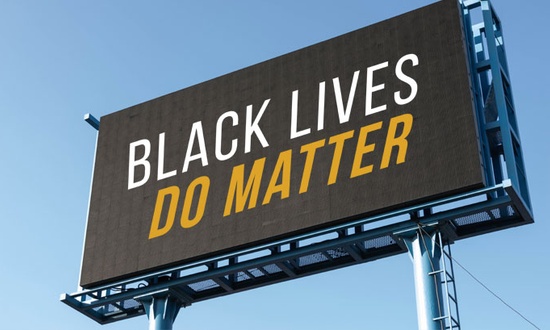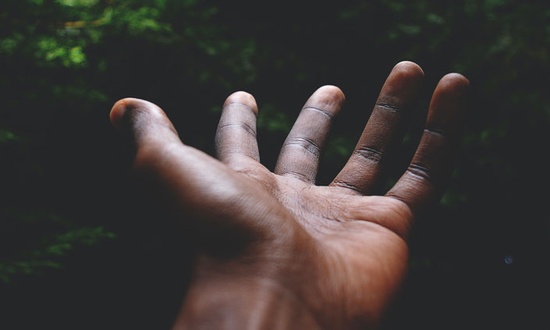Soon after the death of George Floyd, Kelsey Brown, a woman I know and deeply respect, who lives here in Oregon, shared the following words on Facebook. (Kelsey’s husband Vergil, founding pastor of Gresham Bible Church, is now pastor of church planting at Hinson Baptist Church. The Browns are in the process of planting Redemption Church in North Portland, which Vergil will pastor and in which Kelsey will play a major role.)
It was very hard for me to sleep last night. I laid in bed with tears in my eyes remembering all of the different instances of racism I’ve witnessed during my relationship with Vergil and having 4 black children. From the small town in Oregon where we stopped during our honeymoon that we were warned to not stay in, and told at breakfast we needed to leave immediately...to being pulled over on our way to the beach for absolutely no reason, just to check what we were doing there and where we were going. To the racial slurs hurled out a window towards our family on a walk to the park, to the N word being used toward my daughter at school and toward my husband by a group of white men on the bike trail, to hate speech directed toward my son on a playground, to being the one to return things without a receipt because the store employees assumed Verge had stolen it, to picking things up off of Craigslist so he wouldn’t get the police called on him... and countless others…and if this is only what I’ve seen, can you imagine walking in my husband’s shoes?
We’ve had so many tearful and heavy conversations with our kids lately...it’s time for a change. White people, this is not ok! Racism is taught, hate is modeled, and parents, your silence will be copied. This is not a political issue—it is a people issue. Time to wake up, time to grieve with your black brothers and sisters, time to donate, time to peacefully protest, time to stand up and say we value black lives. All lives matter is the ideal, but not the reality.
Teach your children to stand up for mine. We need you.
My heart breaks for Kelsey and her family, and all the more having heard these stories over and over again from trustworthy people like her and Vergil. I heard them from many people I interviewed in the 90’s when researching my novel Dominion, and have heard them repeatedly ever since.
However, when I shared her post with some friends, one stated this:
Someone I know had a hard time when she said, “White people, this is not ok!” They felt it was painting a very broad brush over all white people and assuming all are guilty of racism. I wasn’t totally sure how to respond, especially since her post reflected so much pain.
Here was my response:
1) First, I don’t fault Kelsey for anything she said. But even if you wished she’d said something differently, I’d say you should take into consideration that pain you realize she was in, especially over her children having been called names and mistreated. I remember 22 years ago when one of my daughters was mistreated by a tennis pro at a high school match. My pain and defensiveness of my daughter bordered on outrage because of the blatant disrespect this man showed her. I said things to him, witnessed by a few others, with a directness and passion I wouldn’t want others to judge me by. And that was not over years or decades of disrespect, but a single instance. My question is, would you want all your words to be parsed by others when you are at a point of devastation? We need to give a wide berth to others, treating them as we would want others to treat us when we are devastated. As Jesus put it, “Do to others as you would have them do to you” (Luke 6:31).
2) The fact that Kelsey is white means she is not accusing the whole race but speaking to her own “people group.” When someone black says to other blacks, “We need to ….” it’s very different from a white person addressing black people as a whole and saying, “You need to…”
3) She is NOT saying all white people think racism is okay, since she knows many who don’t, including herself and her family and many white people that have been part of their churches. What she’s saying is that SOME do, and they need to repent of it. It’s just like if I were to say to men, “Many women are still treated as inferior, second class and subservient to their husbands. Men, this is not okay.” It’s up to anyone hearing me to realize I am not saying ALL men are guilty of this, rather I am recognizing some are and am appealing to them to repent of it.
4) Finally, I think there are many whites who would never do what others have done to Kelsey’s husband and children, but who tolerate it when other people do it. Being forcefully told “White people, this is not okay” in the context of all she said includes it’s not OK to refuse to speak up for those who cannot speak for themselves. If someone is telling a dirty joke and I don’t walk away or make it emphatically clear I don’t approve, I am complicit with it. If someone is telling a racist joke or using a racist slur or demeaning someone for their skin color, it’s not enough that I am not doing it. I must speak up and tell them I think it’s wrong or I am enabling racism through my silence. (This is the sin of commission versus sin of omission issue.) I am not ashamed of being white, nor do I feel guilty for it, nor do I apologize for it. God made we white just as He made others black and every other race. But the truth is, many white people who would never call a black person names empower and enable others to do so through our silence. At that point, we enter into the sin of racism.
Kathy Norquist, one of our EPM board members, added these thoughts:
I think, like Randy said, Kelsey being white gives her more credibility to speak out. Of course, not all white people are racist, though I tend to think there’s more prejudice in us than we care to admit or even realize. Just this morning I felt the Lord convicting me of something I subconsciously have thought that I wasn’t even aware of (from the way I grew up, not from my parents, but from extended family).
But don’t zero in on the minutia of particular words and miss the big picture. We need to wake up and feel people’s pain in a real way and not miss it. When someone responds to someone sharing their pain with, “Yes, but…” the conversation ends. It feels like the person rides right over the main issue and goes onto something else, dismissing the heartfelt cry for justice. Not feeling heard, understood, or cared about breeds hurt and anger. We need to listen, seek to understand, and come alongside.
Listening and learning is what I’m doing now.
I appreciate Kathy’s words, and I applaud those who are dealing with these issues in their lives. This should not be written off as imposed white guilt and self-loathing, nor is it about political correctness. It’s about healthy self-examination before God. “Let us examine and probe our ways, And let us return to the Lord” (Lamentations 3:40). “See if there be any grievous way in me, and lead me in the way everlasting” (Psalm 139:24).
May God help us to understand, empathize, repent when necessary, and both teach and live out in words and actions the Good News that our Jesus died, among other things, to unite the races and forever end the hostility:
“For Christ himself has brought peace to us. He united Jews and Gentiles [the ultimate racial divide] into one people when, in his own body on the cross, he broke down the wall of hostility that separated us” (Ephesians 2:14).
Photo by Priscilla Du Preez on Unsplash




